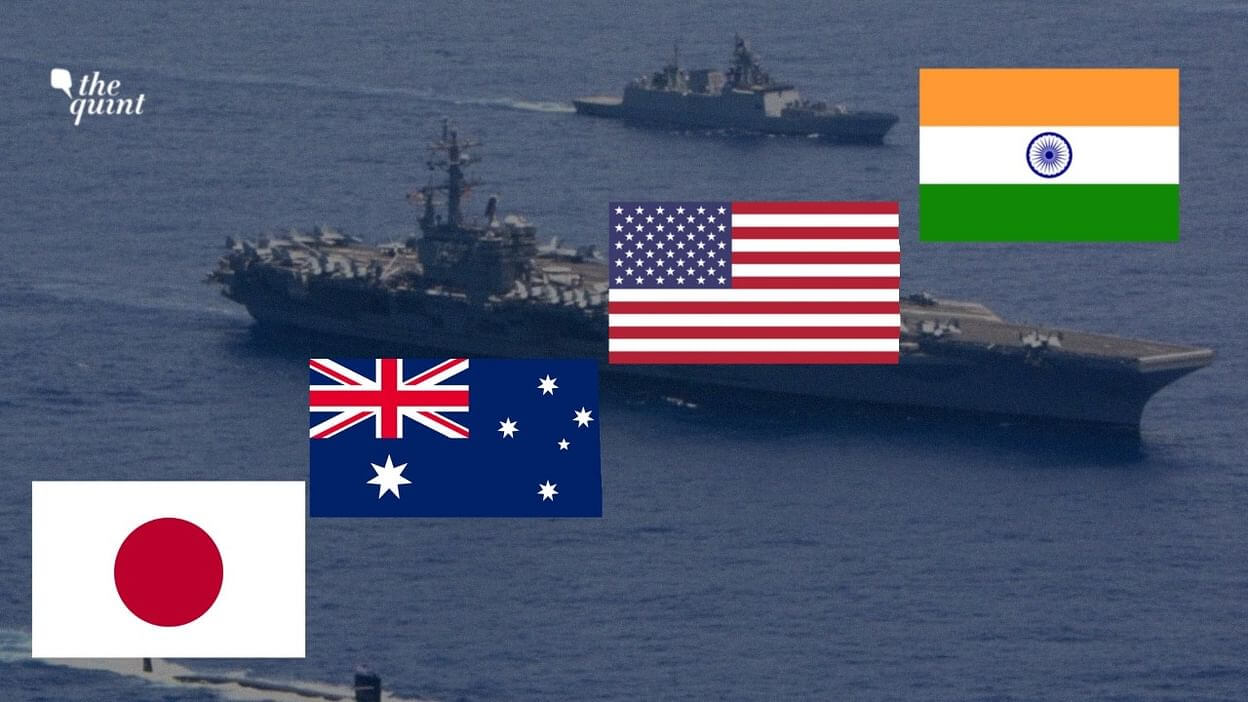According to unconfirmed reports, India, Japan, Australia, and the United States (US), which make up the Quadrilateral Security Dialogue (Quad), are planning on convening for their first meeting since President Joe Biden took office last month. This news comes amidst China’s consistently growing activity in the Indo-Pacific region.
According to a source, the US has already proposed the idea of holding an online meeting to other Quad members, during which the leaders are expected to discuss cooperation for the realisation of a “Free and Open Indo-Pacific” (FOIP). This is part of President Biden’s efforts to focus on bolstering the American side’s participation in multilateral groupings. In furtherance of this aim, National Security Adviser Jake Sullivan has called the Quad “a foundation upon which to build substantial American policy in the Indo-Pacific.”
In addition to the US’ initiative, former Defence Minister of Japan Satoshi Morimoto also called on the grouping to “build a Quad-based security framework” to provide support to Southeast and Southwest Asia by promoting “defence equipment cooperation, capacity-building measures, joint training, and joint exercise.” Moreover, he added, “If these joint security cooperation measures are properly implemented, then the Quad framework will become the key pillars of regional peace and security in the Indo-Pacific.”
According to the Japan Times, the materialisation of the meeting now hinges on India’s approval, as New Delhi has historically been known to take a “cautious stand on the framework”, given its testy relationship with China. This was seen following the most recent minor conflict in Sikkim, when Indian External Affairs Minister S. Jaishankar said that India’s ties with China were “profoundly disturbed”. Consequently, India has been “cautious” in its engagement with other Qiad powers so as to prevent triggering conflict with Beijing along the two countries’ shared border. In pursuance of this approach, the Indian foreign ministry has not issued an official confirmation on its attendance to the meeting so far.
The possible upcoming meeting will be a follow-up to the October meeting in Tokyo, when all four countries exchanged views regarding regional issues related to health security, humanitarian assistance, disaster relief, connectivity, maritime security, and counter-terrorism. At the meeting, they also reasserted their firm support to the centrality of the ASEAN, highlighting their readiness towards working with the bloc to achieve a “common vision for the Indo-Pacific.”
Following this meeting, the US was explicit in acknowledging the importance of the grouping, with President Donald Trump conferring Indian Prime Minister (PM) Narendra Modi, Australian PM Scott Morrison, and former Japanese PM Shinzo Abe with the Legion of Merit, which represents one of the highest military honours.
Beijing has previously made its disdain for the grouping clear by calling the Quad an “exclusive clique” that targets third party nations. In an interview with Xinhua in September, Chinese State Councilor and Foreign Minister Wang Yi stated, “Some American politicians who are biased against and hostile to China are using their power to smear China with fabrications and impede normal ties with China under various pretexts.” He further stressed that “anyone who tries to start a so-called “new Cold War” in the 21st century will be on the wrong side of history”. In line with past remarks, Beijing is not expected to take reports of a new Quad meeting well, as the grouping’s framework aims to contain China’s activities in the Indo-Pacific.
Quad Members Plan First Meeting Since Biden Inauguration
India, Japan, Australia, and the United States are planning to hold their first meeting as part of the Quadrilateral Security Dialogue since Joe Biden took office last month.
February 8, 2021

SOURCE: THE QUINT
